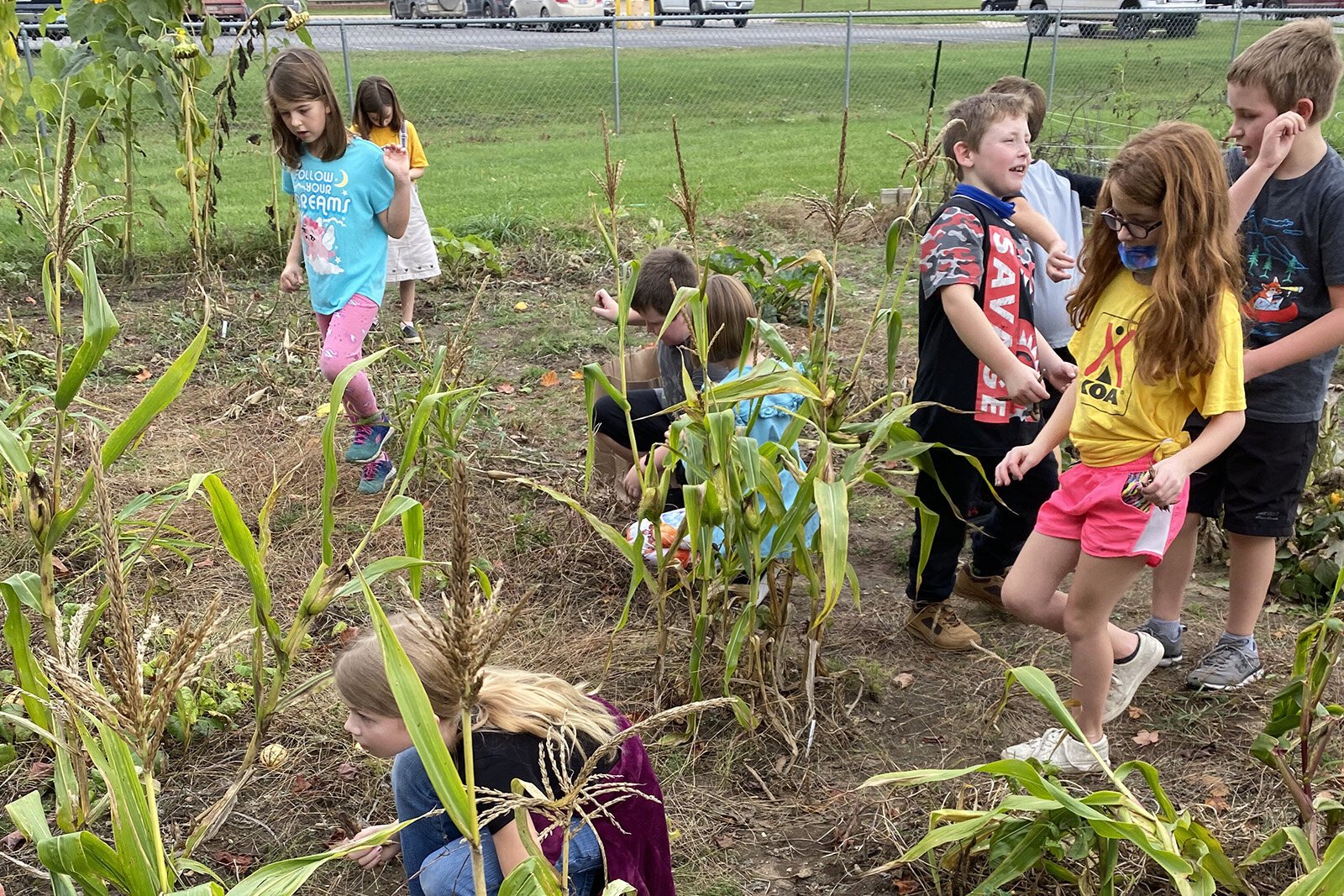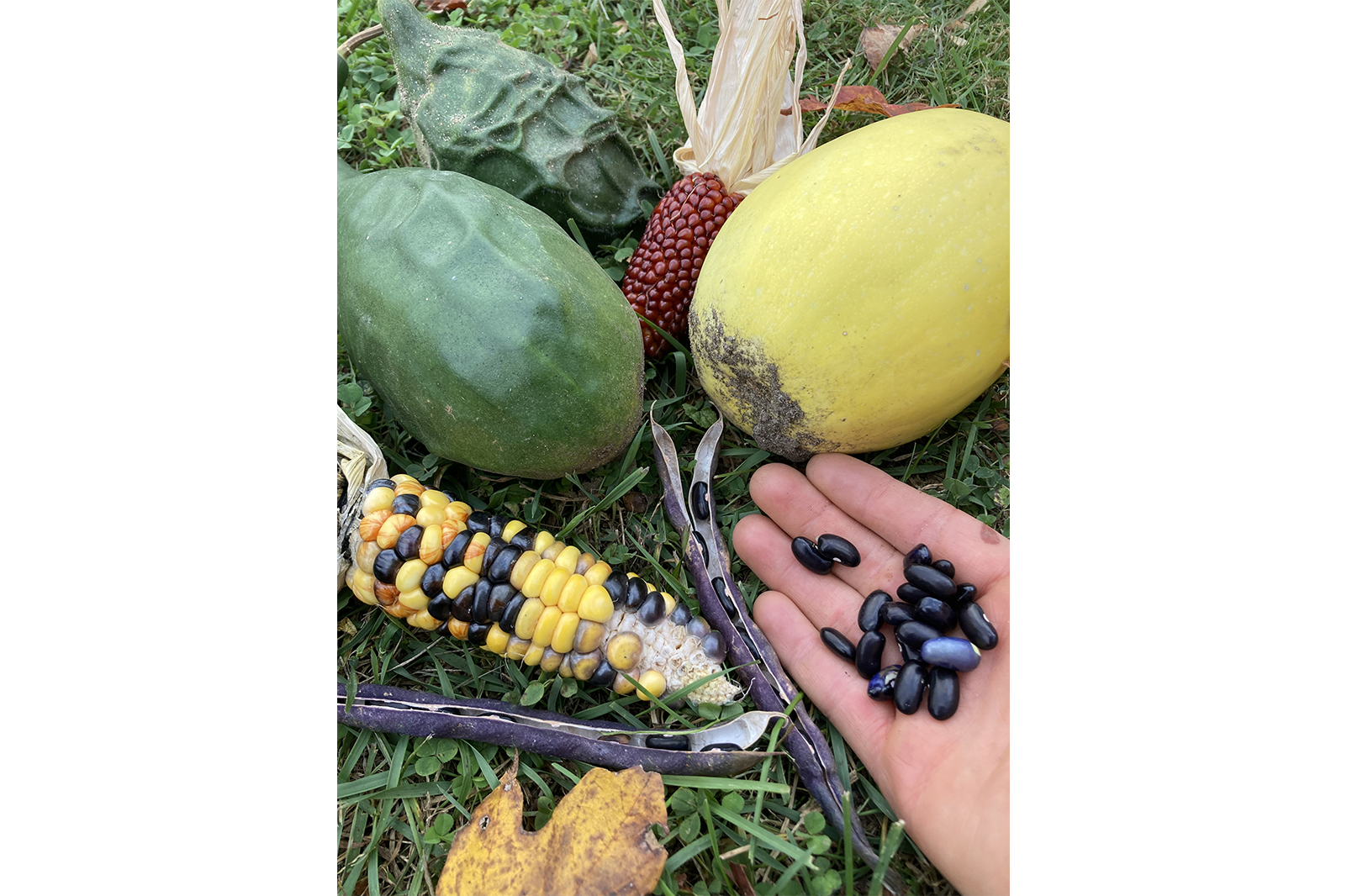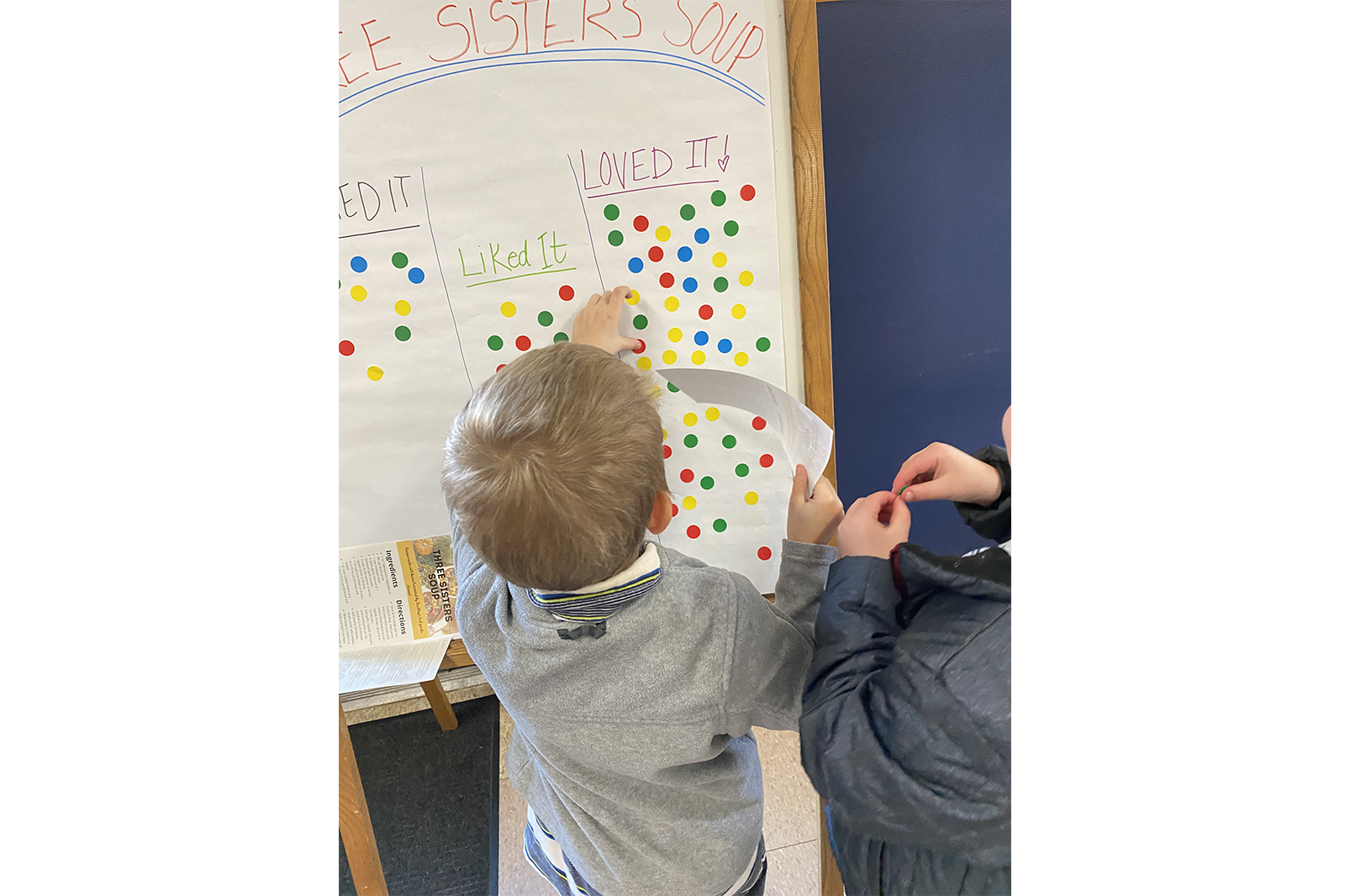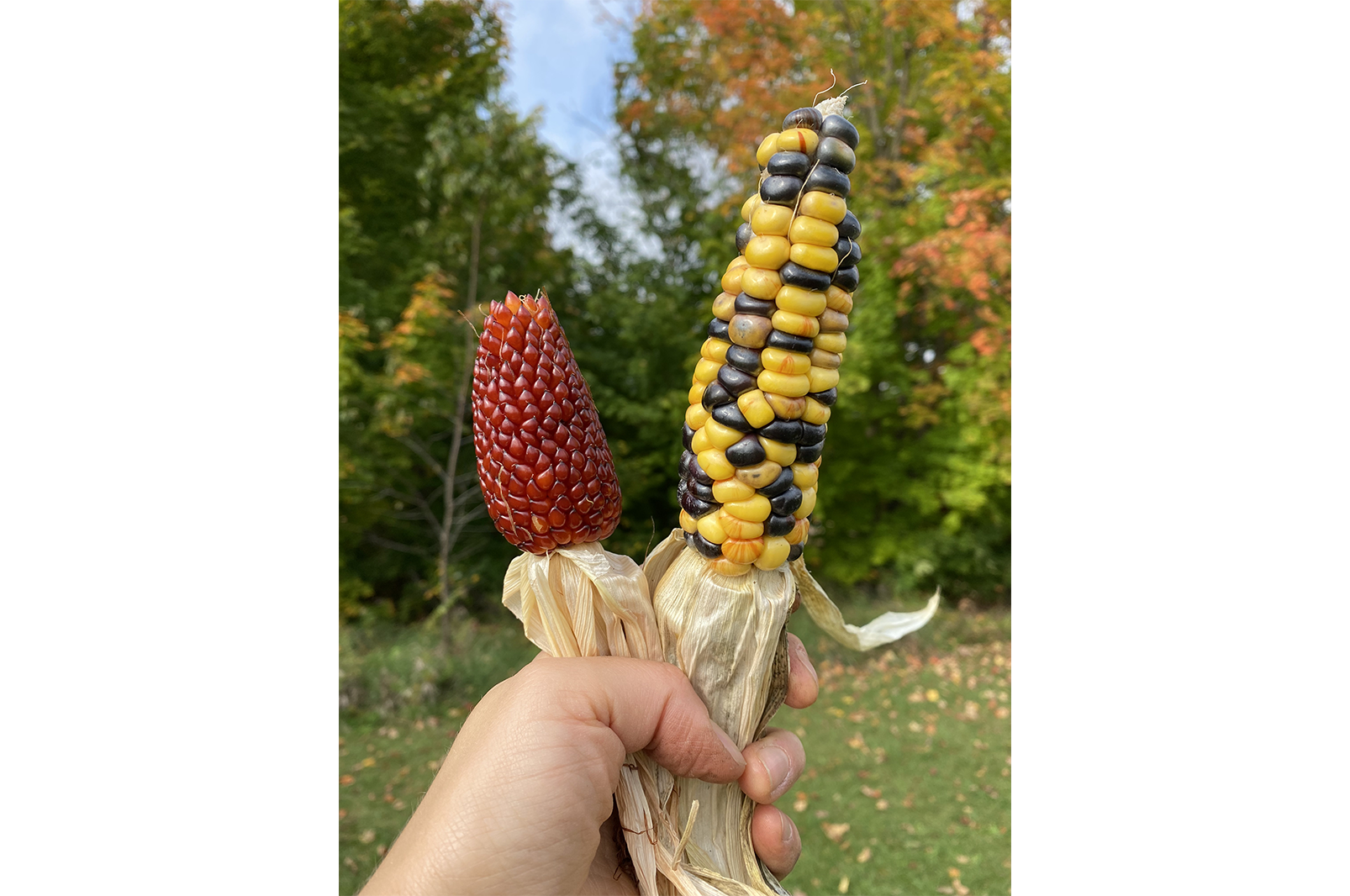Partner Partner Content SNAP-Ed programs grow change in Michigan’s northwestern rural communities
Covering five northern Michigan counties, Northwest Education Services (NES) nutrition educators use a community-based approach that recognizes the unique strengths and challenges of each community they serve.

This article is part of Stories of Change, a series of inspirational articles of the people who deliver evidence-based programs and strategies that empower communities to eat healthy and move more. It is made possible with funding from Michigan Fitness Foundation.
Covering five northern Michigan counties, Northwest Education Services (NES) nutrition educators use a community-based approach that recognizes the unique strengths and challenges of each community they serve.
Formerly known as the Traverse Bay Area Intermediate School District, NES’ SNAP-Ed work is helping to transform lives by educating and inspiring students and their families to consume more fruits and vegetables. Their policy, systems, and environmental change (PSE) strategies are geared to promote healthy behaviors by making healthy choices readily available and easily accessible in the community.
This work is made possible in part through Michigan Fitness Foundation (MFF) Supplemental Nutrition Assistance Program Education (SNAP-Ed) funding. MFF is a State Implementing Agency of the Michigan Department of Health and Human Services for the education component of the Supplemental Nutrition Assistance Program. SNAP-Ed is an education program of the U.S. Department of Agriculture that teaches people eligible for SNAP how to live healthier lives. MFF offers grants to conduct SNAP-Ed programming throughout the state of Michigan.
At Creekside School in Traverse City, students are bused in from five area counties. Formerly known as the New Campus School, this K-12 center provides a safe and structured learning environment that combines academics, behavioral instruction, community-based education, and counseling for students with emotional impairments or severe behavioral concerns. The students are refurbishing a hoop house and raised beds with the goal of planting and harvesting food to be distributed to students and their families at Spirit Pantry, the school’s food pantry.
“This a unique school because it’s not just kids from Traverse City. They are from all over and have distinct needs,” says Marisa Hrbal, nutrition facilitator for the NES Farm to School program. “We’re working with them on planning and building their garden so it can become self-sustaining. We’re here to help, then they can carry on with what they’ve learned without us. It’s about providing the necessary tools and information and making healthy food more accessible to students and their families across the region.”
From the school garden
About 20 miles south of Traverse City in Wexford County is the rural town of Buckley. It is a small agricultural community with farms, wide open spaces, pastures, grazing land, and about 700 residents.
“In Buckley, food access is really an issue, largely because it’s a very small town and the nearest grocery store is in Traverse City or Cadillac, a half-an-hour drive in either direction by car,” explains Elena Mosher, NES farm to school coordinator.
While Buckley is a farming community, most farming operations there are large-scale and designed for commercial distribution, so a lot of the food grown doesn’t stay in the community. To address the lack of retail food access, the NES SNAP-Ed team partnered with Buckley Community Schools to create a Farm to School program and build a community garden that is now sustained by the community. The project was made possible with support from the school’s teachers and administrators, donations from local merchants, and community members who care for the garden.
“Many of our Buckley families are farm families or have home gardens. So, a lot of the kids have some garden knowledge,” says Elena Mosher, NES farm to school coordinator. “Now, they are making that connection at school as well as at home.”
In 2021, a portion of the 4,000-square-foot garden was dedicated to a Native American-inspired Three Sisters Garden, planted in eight mounds with corn, squash, and beans. The three crops have been at the center of Native American agriculture and culinary traditions across the Americas for thousands of years. Third graders harvested the garden in October on Indigenous Peoples Day.

“The third graders took the beans back to their classroom to let them dry out and shelled them. Then we collected them from the classrooms and made a Three Sisters stew for our cafeteria taste test,” Mosher says. “The purpose of the taste test program is to expose students to new foods and give them an opportunity to try something new in the cafeteria. We’re working a lot more closely with the food service director and the administration this year to plan for using garden produce in the school cafeteria.”

The garden is also creating a ripple effect as food from the garden is donated to the Buckley Food Pantry, at the Firehouse, located at the Tabernacle Church’s Buckley campus in town. Any excess produce from the pantry is then donated to the Food Rescue of Northwest Michigan in Traverse City, which is managed by Goodwill Northern Michigan.
Buckley’s Farm to School program pairs SNAP-Ed nutrition education with learnings about where food comes from, and it goes beyond the classroom by offering residents access to nutritious, healthy foods. This synergy creates mutually reinforcing benefits. Students learn about healthy foods, have increased access to those healthy foods, and know the food they are growing is also feeding their community. It’s a win-win.

From classroom to grocery store
South of Buckley is Lake City, the “Christmas Tree Capital” of Michigan. It is a rural town, home to about 900 residents – and more during the summer tourism season. The area is known for forestry, dairy farming, tourism, and Christmas tree production. Like Buckley, families experience food access issues.
As part of the Social Determinants of Health, which include a wide range of health and quality-of-life outcomes and risks, people who don’t have access to grocery stores with healthy foods are less likely to have good nutrition. This affects their health and raises their risk of health conditions like heart disease, diabetes, and obesity.
“There was a time when Lake City didn’t have a grocery store,” Hrbal says. “When the new store opened, we began to work with them to identify and implement some of our strategies with their support.”
To support what students are learning in school, the NES SNAP-Ed team provides Lake City’s Rogers Family Foods and Ace Hardware with different recipes and information from MFF’s Michigan Harvest of the Month™ to display in the store.
“People know that they can find and access information at Rogers in connection with what their kids are learning in the classroom,” Hrbal says.
By working with Rogers, NES is extending the nutrition education they deliver in the classroom out into the community. This expands learning and is action-oriented, as it gets healthy recipes in front of Lake City residents while they are shopping.
From farm to family
NES is also providing support to the SNAP-Ed component of MFF’s innovative Michigan Farm to Family: CSA program (MF2FCSA) program, which is made possible through funding from the National Institute of Food and Agriculture and Gus Schumacher Nutrition Incentive Program. Through MF2FCSA, families can sign up to participate in their local community supported agriculture (CSA) programs and receive an affordable weekly box of fresh, healthy produce from local CSA farmers. The program is groundbreaking for families on tight budgets, as the typical CSA membership can be prohibitive due to cost and advance cash payment requirements. Through MF2FCSA, families pay a significantly reduced price, pay upon pickup, and are able to use their SNAP benefits to participate. This brings essential nutrients to the tables of families who lack access to a wide range of foods. In addition to connecting families to locally grown, fresh fruits and vegetables, NES SNAP-Ed nutrition educators share recipes and tips about how to prepare, cook, and store the food they receive through the program.
“We hope this will address some of Lake City’s food access and nutrition security issues by partnering to get families involved,” Hrbal says. “We’re connecting people to local food through Infinity Microfarm. They are a local family farm and have been connected to the soil here their whole life. Their children go to school in the community.”
Their goal is to sign up 20 Lake City families for the program. Like other CSA farms, Infinity Microfarm offers dairy products, meats, and eggs in addition to fresh produce through their collaboration with other local CSA farmers in the area. For example, microgreen salad mixes are provided by Elty Farms of Lake City, sweet corn and a variety of winter squashes come from DeHaven Farm in Marion, and potatoes are from Eisenga’s Potato Farm, also in Marion.
“We’re not connecting families to just one farmer,” explains Hrbal. “We’re connecting them to a whole range of locally based opportunities for better food, better eating.”

While Mosher and Hrbal have found that the people in the communities they serve want to live healthier lives, the challenge is they don’t always know where to find those opportunities or have a way to access resources that support healthy living.
“Our role as SNAP-Ed educators is to improve eating and lifestyle behaviors,” Hrbal concludes. “We are doing that by seeking out resources, developing partnerships, and forming collaborative actions to address the issues at hand to create healthier communities here in Northwest Michigan.”




